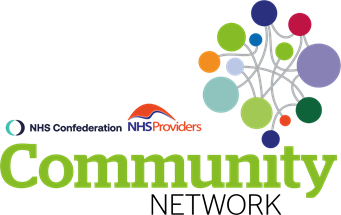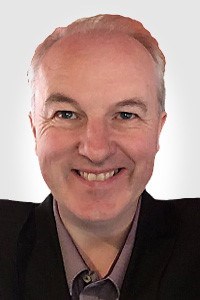
When talking about community, what do we really mean? John Walsh writes beyond the idea of bricks and mortar.
The Community Network, hosted by the NHS Confederation and NHS Providers, is shining a light on innovation practice among community providers.
As part of a blog series, leaders from across the community sector and beyond are outlining how they are helping the health and care system respond to the big challenges ahead.
We use the word 'community' a lot. We talk of working with local communities and working to ensure our organisations truly represent our communities. This is totally right and good. When we start to ask what community is, I am not sure we always step back and reflect enough on this. We often see it as neighbourhoods, streets and the bricks and mortar where people live. Community is certainly these things or can be. There is however another, deeper, meaning that we sometimes encounter and perhaps never talk about.
The word 'community' comes via an old French word that itself derives from a Latin communis meaning 'common'. So, community is the creation of common space and connection. It is what binds us together in meaning and resonance. Some people don't find community in their actual neighbourhoods, however, they may find the local park run or an online group or faith community their true community.
It's about what creates communion – that experience where we feel at home. Where a common bond and sense of belonging show up for us and through us.
What do communities have to do with our organisations and the NHS?
We can often miss the very human stuff happening right in front of us.
Freedom to Speak Up Guardian
Gareth Morgan in his book Images of Organisation looked at different views of organisations. One was 'organisation as machine', where an organisation operates like a large machine or a series of machines. It is a powerful description of where people become cogs or wheels in the system. In this we become mechanical and end up lost in our systems, laptops and work.
In this sphere we can often miss the very human stuff happening right in front of us. Erving Polster the great gestalt therapist once rightly warned about getting too close to machines as we start to become machine-like ourselves. There is a need therefore to create spaces to be human at the heart of our organisational systems. There is a crying need to build this sense of 'community' in our organisations and services. This experience of human care, vulnerability and value is essential.
This is a space where people can laugh, share, cry and start to feel okay. The more we build these human encounters, the healthier and more humane our systems will be.
How do we put community back into our lives?
We can make the links with others that help us all.
Freedom to Speak Up Guardian
The good news is that we can build this even in our challenging and uncertain world. We can aim that every conversation, email and approach can be shot through with kind intent and true listening. We can think of those in our systems who may feel marginalised and reach out to them. We can make the links with others that help us all.
We may often fail in this, but we get up and keep on trying to be what we would ask from others.
A living example
At Leeds Community Healthcare NHS Trust, we try to live this idea of connection and care. One of our behaviours is 'caring for each other'. We have several staff groups, such as for those who are clinically extremely vulnerable, a men's health group and the race equality network, which really are micro communities at the centre of the organisation. These are places where staff meet as people and listen and grow together. These are living embodiments of our trust behaviours and human values.
This work is aligned to other work streams. It flows into organisational development, service improvement, human resources approaches, leadership development, coaching, one-to-one support around health and wellbeing, the work of our race equality network, the psychological interventions and freedom to speak up work. It needs to flow and interlock or else it will be isolated and struggle for organisational effect.
The value of feeling part of a community
This work leads to people feeling less isolated at work, feeling better about themselves and their work, finding a sense of hope in the middle of heavy and constant daily demands, seeing more clearly what their colleagues are going through, speaking up and making personal decisions for self-care.
Charlie Jones and Martin Seager in their article on humanising the machinery of care refer to the five universal psychological needs, which sum up both the intention and outcome of this work:
- to be loved
- to be heard
- to belong
- to make a difference
- to have meaning and purpose.
Placing the human at the centre of our systems and services is about being the best we can be for ourselves and each other.
Continuing the journey
This building of community wherever we go in our organisations is a sign for hope and the future.
Freedom to Speak Up Guardian
This is a long cultural journey and I do not want to pretend we have arrived. We have not and have a long way to go. The important thing is we have a way forward. Emily Dickinson, the poet, wrote: "The sailor cannot see the north, but knows the needle can." She knew she had a compass and that was her direction going forward. We too need a human and humane compass to aid our path as we go ahead.
We are in the midst of a deep winter for our NHS with massive challenges around demand, staffing and staff health and wellbeing. In these dark times I think this building of community wherever we go in our organisations is a sign for hope and the future. And it starts with the next conversation.
John Walsh is freedom to speak up guardian at Leeds Community Healthcare NHS Trust. You can follow him on Twitter @johnwalsh88.
About the author

